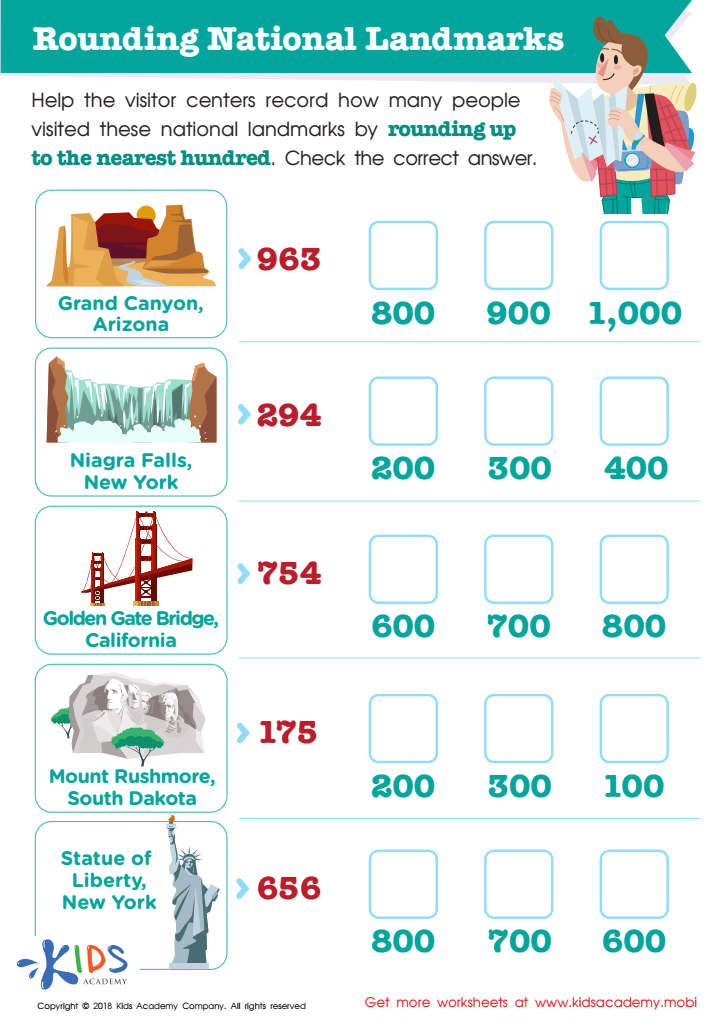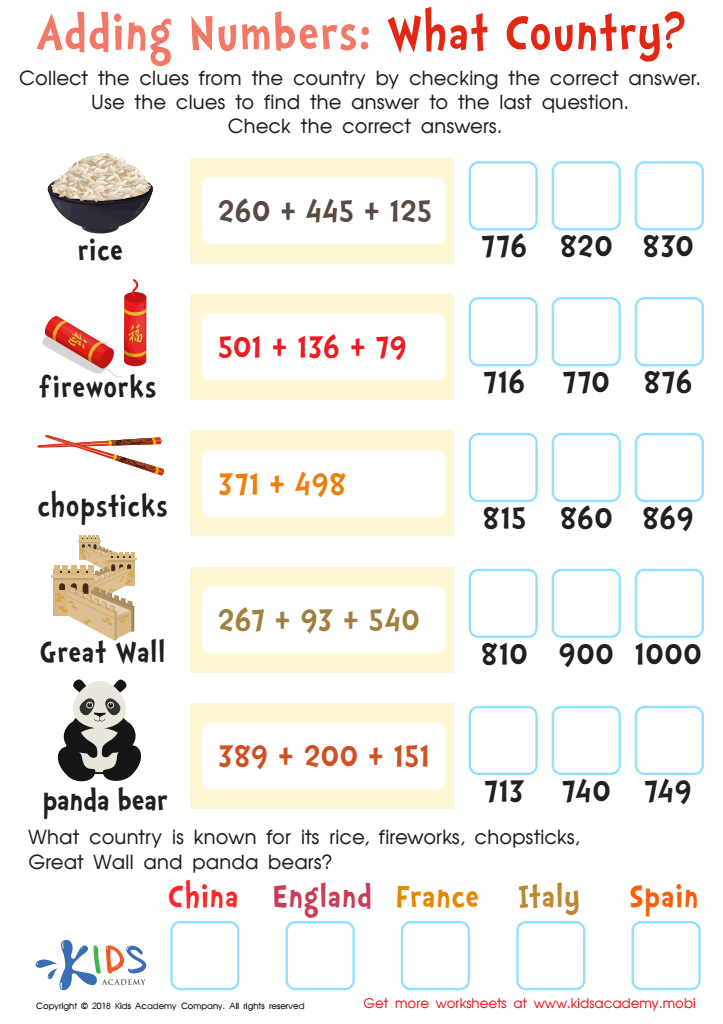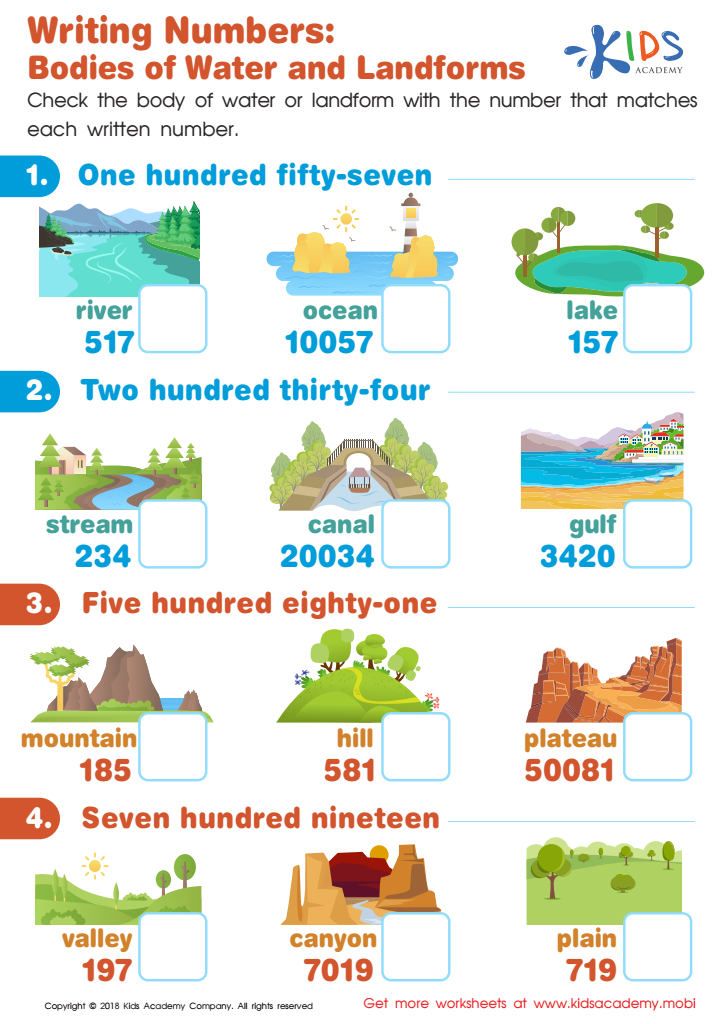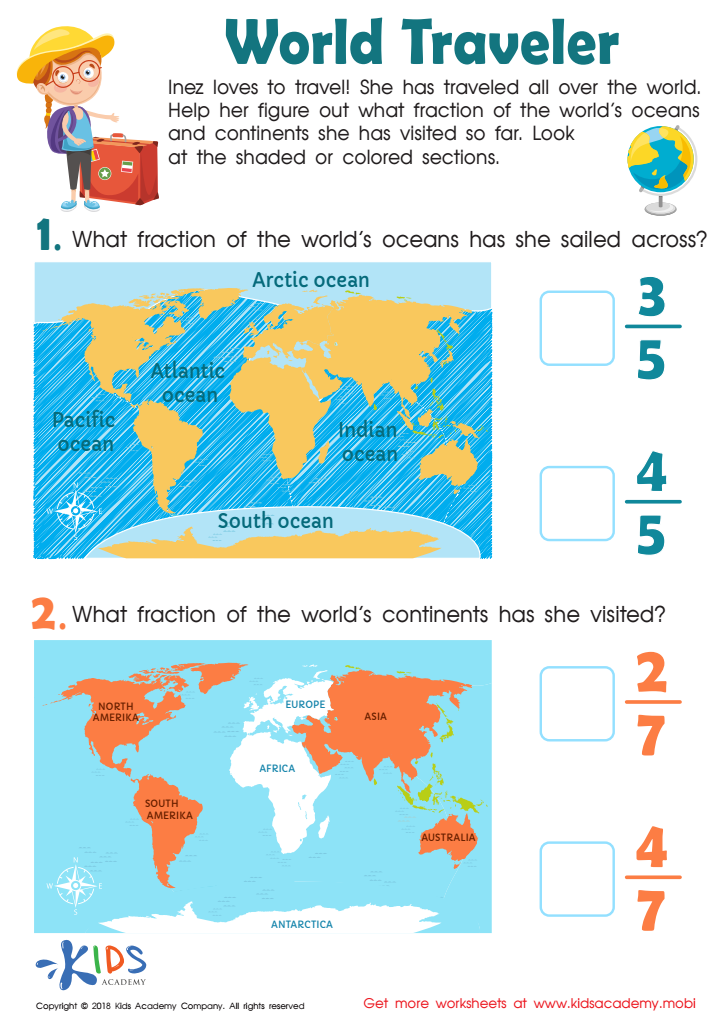Geography knowledge Normal Math Worksheets for 8-Year-Olds
4 filtered results
-
From - To
Introduce your child to the exciting world of geography and foundational math with our specially designed worksheets for 8-year-olds at Kids Academy. These engaging activities blend geography knowledge with normal math concepts, enhancing your child's learning experience. By exploring different countries, cultures, and landmarks, kids can build a curiosity for the world while practicing essential math skills like addition, subtraction, and measurement. Each worksheet is crafted to be fun and informative, helping students develop critical thinking and problem-solving abilities. Give your child the tools to excel in both math and geography—we make learning enjoyable!


Rounding National Landmarks Worksheet


Adding Numbers: What Country Worksheet


Bodies of Water and Landforms Writing Numbers Worksheet


World Traveler Worksheet
Geography and mathematics are foundational subjects that greatly influence an 8-year-old's comprehensive understanding of the world around them. Understanding geography helps young learners make sense of their surroundings, appreciate different cultures, and develop a sense of global awareness and citizenship. It lays the groundwork for critical thinking and spatial reasoning skills through studying maps, learning about various landscapes, understanding time zones, and recognizing global connections. Engaging with geography nurtures curiosity and enhances a child's ability to analyze their environment, equipping them with the tools to navigate the world effectively.
Mathematics, on the other hand, is crucial for cognitive development and problem-solving skills. At the age of eight, children delve into core mathematical concepts such as addition, subtraction, multiplication, and division. These foundational skills are essential for more complex problem-solving and logical reasoning in the future. Mathematical proficiency also enhances a child’s ability to perform everyday tasks like counting money, telling time, and measuring objects, boosting their confidence and independence.
Both geography and math lessons pave the way for academic success and prepare children for future challenges. Thus, parents and teachers should prioritize these subjects to ensure students develop into well-rounded, knowledgeable individuals ready to navigate an increasingly interconnected and complex world.
 Assign to My Students
Assign to My Students




















